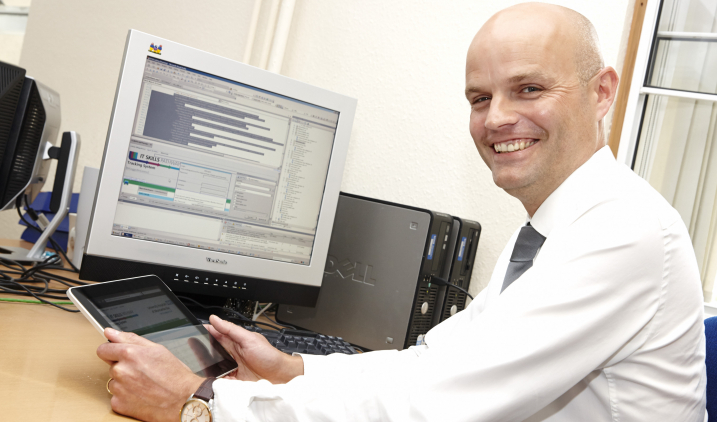Clinical bioinformatics (health informatics)
Bioinformatics (health informatics [1]) combines computing science with information science, biology and medicine.
Overview
You’ll provide support to ensure that bioinformatics data is used efficiently and to required standards. Connecting computing science, information science, biology and medicine is one of the fastest growing areas of research and development within healthcare.
Vast amounts of data and information are generated and bioinformatics resources are used. The NHS is using advances in this area in diagnostic testing and management to provide the highest quality patient care and outcomes.
You’ll need a good grounding in, information analysis and computing, as well as clinical, biomedical or physical sciences. This unique combination will enable you to integrate into a clinical-health informatics [1] environment.

Working life
You will work as a clinical scientist, as part of a multidisciplinary team that includes clinical scientists, doctors, specialist nurses [2], informatics [1] specialists such as clinical informaticians [3], information management [4] and technology teams [5] and external providers of software including databases.
In your work, you’ll:
- provide cross sub-discipline bioinformatics support
- ensure data received and generated is interpreted and used in an efficient, standardised, secure and accurate manner
- use leading edge technologies
- adhere to information governance standards.
You'll be provided with the opportunity to further develop specialist informatics [1] skills such as information governance, interpretation, analysis and use of information. You’ll also have the opportunity to gain greater knowledge of systems development and design.
You’ll further develop strategic working and leadership skills and will be expected to advise on best practice in a variety of areas, including:
- interpretation, integration and reporting of a range of data, intelligence and evidence from large datasets or 'Big Data' that an organisation/system produces
- explaining the significance of data in a way that can be easily understood by others (patients, clinicians and managers)
- data mining [6], handling and processing
- advising peers and colleagues on best practice in:
- data and information security
- patient confidentiality
- record sharing
- information sharing with patients/clients
- records access by patients
- reviewing opportunities for the application of tele-health or tele-medicine
You’ll develop the skills and tools needed by all professionals in a modern healthcare system. You'll also provide services that are safe, secure, high quality and have patient at the centre.
Want to learn more?
- Find out more about the entry requirements, skills and interests required to enter a career in bioinformatics (health informatics) [7].
- Find out more about the training you’ll receive for a career in bioinformatics (health informatics) [8].
